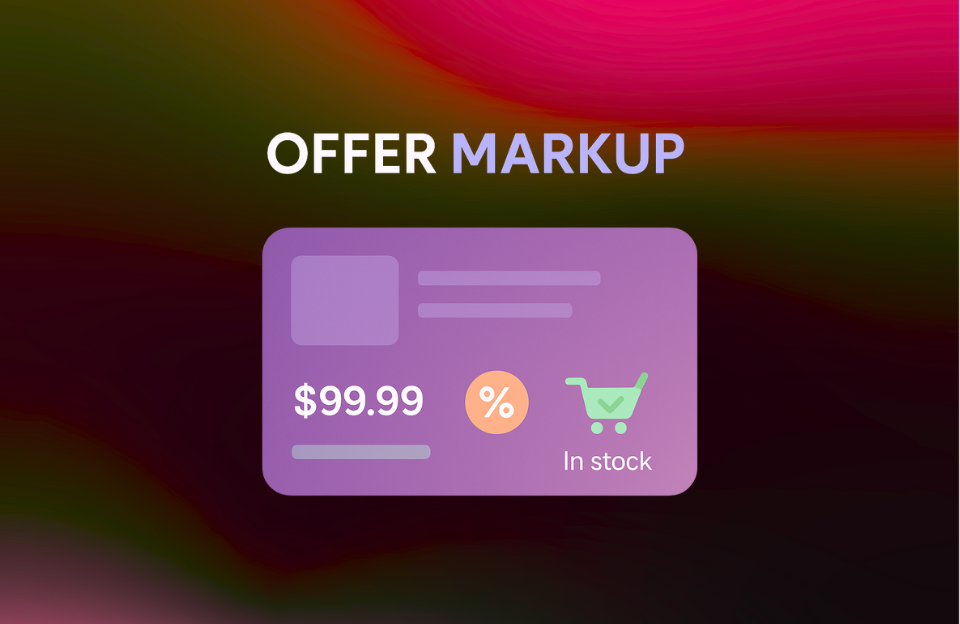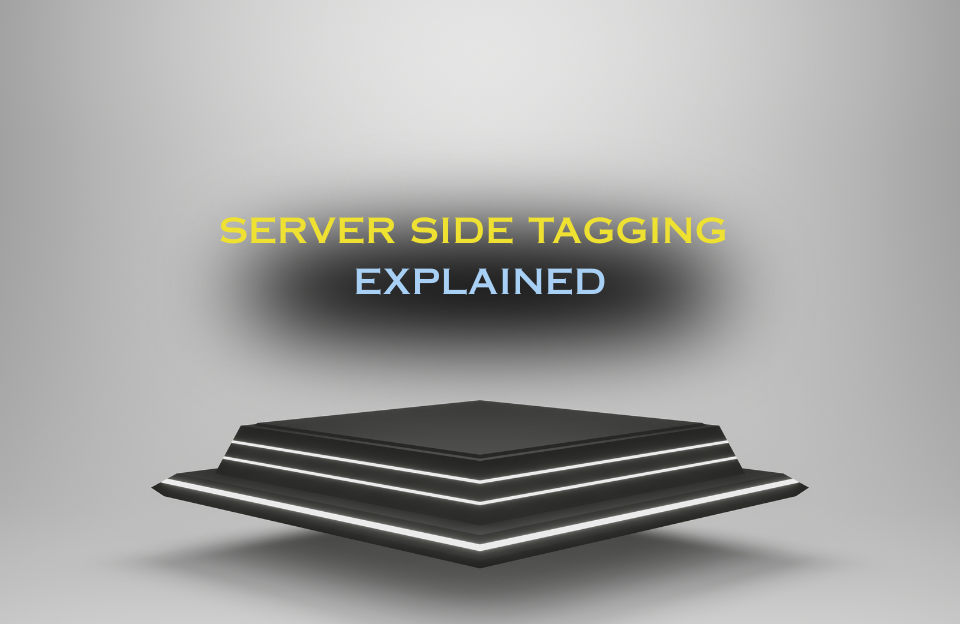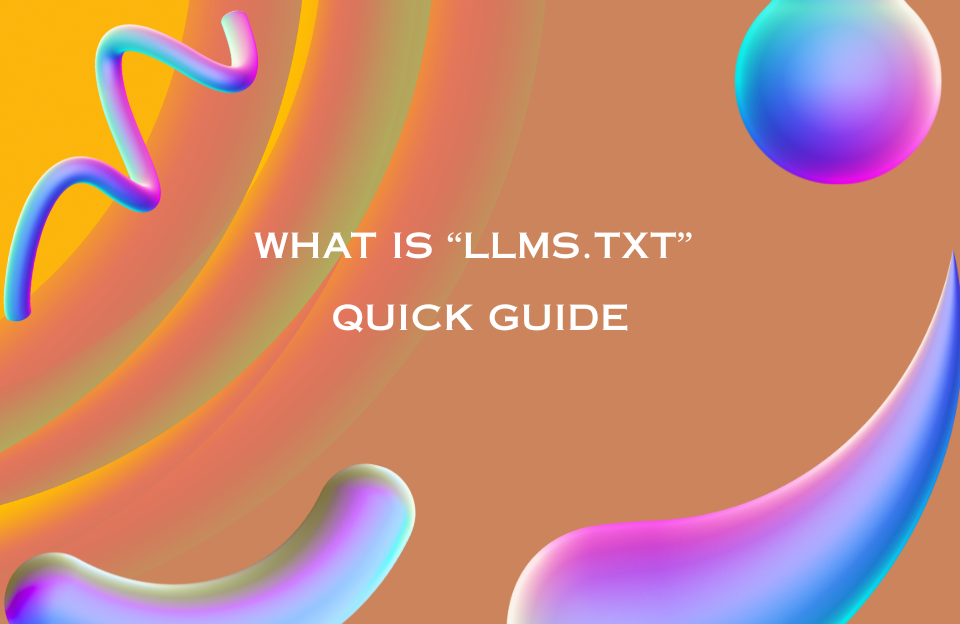Offer Schema is one of the most practical and impactful types of structured data for product-based websites. By implementing Offer Schema markup, you can clearly communicate key details such as price, stock status, and discounts to search engines and AI tools. The result? More visibility in search, enriched snippets, and better user engagement.
What Is Offer Schema?
Offer Schema is a type of structured data defined by Schema.org that allows websites to mark up products with information such as price, currency, availability, and special offers. This markup helps Google and other systems understand your product listings better, which can lead to enhanced display in search results—especially for eCommerce businesses.
Why Use Offer Schema?
- Improve visibility: Eligible products may appear in Google Shopping or search results with visible price and availability.
- Boost click-through rates (CTR): Enriched search snippets attract more attention and trust.
- Support AI summarization: AI tools rely on structured data to interpret and surface product information in overviews or chat interfaces.
- Enhance product understanding: Schema tells crawlers exactly what your offer includes—reducing ambiguity.
Core Properties of Offer Schema
- price – The price of the item (e.g. “29.99”)
- priceCurrency – Currency code in ISO 4217 format (e.g. “EUR”)
- availability – Stock status (e.g. “https://schema.org/InStock”)
- itemCondition – New or used (e.g. “https://schema.org/NewCondition”)
- validFrom – When the offer becomes valid (ISO date)
- priceValidUntil – Optional end date of offer
- url – Link to the product page
Basic Offer Schema Example (JSON-LD)
{
"@context": "https://schema.org/",
"@type": "Product",
"name": "Wireless Headphones",
"image": "https://example.com/images/headphones.jpg",
"description": "High-quality Bluetooth headphones with noise cancellation.",
"sku": "WH-12345",
"offers": {
"@type": "Offer",
"url": "https://example.com/product/wireless-headphones",
"priceCurrency": "EUR",
"price": "99.99",
"itemCondition": "https://schema.org/NewCondition",
"availability": "https://schema.org/InStock"
}
}
How to Test Your Offer Schema
Once implemented, it’s essential to validate your structured data to ensure it’s error-free and eligible for enhanced search features. Google provides several tools to help:
- Rich Results Test:
Test a specific URL or code snippet to see if your Offer Schema qualifies for rich results. - Schema Markup Validator:
Validate broader schema.org implementation beyond Google’s specific requirements. - Search Console > Enhancements:
Once indexed, check Google Search Console for structured data errors and warnings under the “Products” enhancement report.
Testing regularly ensures your markup remains compliant, especially when prices or stock levels are updated dynamically.
Advanced Tips for Using Offer Schema
- Use with Product Schema: Nest your Offer inside a Product entity for maximum effect.
- Update dynamically: For frequently changing prices or stock, update the schema via JavaScript or server-side logic.
- Include multiple offers: For configurable products or bulk pricing, add an array of Offer objects.
- Be consistent: The markup should reflect what’s actually visible on the page.
Offer Schema and SEO Impact
While structured data is not a direct ranking factor, Offer Schema enhances how your product appears in SERPs. Listings with price and stock status look more professional and clickable. This can indirectly affect rankings through better CTR and engagement.
It’s also important for eligibility in:
- Google Merchant Center feeds (if using structured data as input)
- Google Shopping listings
- Product snippets in organic results
- AI-powered answer boxes or Search Generative Experience (SGE)
AI and Structured Data
AI systems like Google’s SGE and Chat-based product discovery tools increasingly rely on structured data to extract product info. Offer Schema helps these systems confidently display pricing and availability without requiring natural language parsing of your product pages.
Common Mistakes to Avoid
- Missing priceCurrency: This is required for the price to be understood correctly.
- Invalid URL or image: Broken links or placeholder images can block eligibility.
- Mismatch with visible content: Ensure the schema matches the actual page content to avoid penalties or devaluation.
- Forgetting availability: “InStock”, “OutOfStock”, and similar values must use full schema.org URLs.
Where to Add Offer Schema
- On product detail pages: One schema per product, updated in real-time if possible.
- In head section (preferred): Add JSON-LD directly to the HTML head or via GTM.
- Via plugin: WooCommerce, Magento, Shopify, and others support schema plugins.
- In server-rendered HTML: Ideal for SEO and AI readability.
Conclusion
Offer Schema is a low-effort, high-impact enhancement that helps both search engines and AI tools understand your product listings. From better SERP snippets to richer product discovery, this markup ensures your pricing and availability are clearly communicated to the systems that matter.
Need visibility? Start with structure. Offer Schema is your foundation for smarter search and higher conversions.




